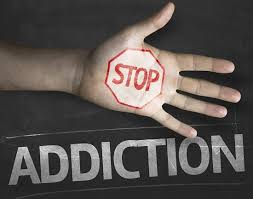Xanax Abuse Symptoms & Withdrawal
Immediate
Placement Available at our Top-Rated Treatment Centers.
Please call us at (855) 410-4488. We work
with most major insurance providers and offer flexible payment
options!
Atrium Addiction Care offers a variety of treatment choices and programs for individuals struggling with drug or alcohol addiction. Our inpatient treatment programs are designed for those who have more severe substance use problems and require 24-hour care. We admit both voluntary and involuntary patients.

Xanax, also known by its generic name alprazolam, is a benzodiazepine commonly prescribed to treat anxiety and panic disorders. However, due to its sedative effects, the drug has become popular for non-medical use as well.
This has led to an increase in Xanax abuse which can have serious consequences on both physical and mental health. The symptoms of Xanax abuse vary depending on the individual's usage patterns and can include drowsiness, confusion, impaired coordination, slurred speech, memory problems and mood swings.
In addition to these immediate symptoms, individuals who abuse Xanax are also at risk of developing tolerance and dependence leading to withdrawal symptoms upon cessation protracted withdrawal of use. Understanding the signs of Xanax abuse and withdrawal is crucial for effective treatment and recovery from addiction.
Atrium Addiction Care provides comprehensive care for those struggling with Xanax addiction including medically supervised detoxification services medical detox and personalized therapy programs.
Understanding Xanax And Its Uses
Xanax is a medication that falls under the category of benzodiazepines, which are commonly prescribed to treat anxiety and panic disorders. It works by enhancing the effects of neurotransmitters in the brain, resulting in feelings of calmness and relaxation.
Xanax benefits include reducing symptoms related to generalized anxiety disorder such as restlessness, tension, and irritability. However, there are many misconceptions about xanax use that can lead to addiction.
Some individuals with panic disorder believe that taking more than the recommended dose will result in faster relief from their symptoms or increase their chances of feeling euphoric effects. This false belief has contributed to an increased rate of xanax abuse among people who have not been diagnosed with anxiety or panic disorders.
Due to its potential for misuse and addiction, Xanax is classified as a Schedule IV controlled substance by the Drug Enforcement Administration (DEA). As such, it is illegal to obtain without a valid prescription from a licensed healthcare provider.
It's important for individuals who take this medication to understand the legal status of taking xanax and only use it according to their physician's instructions. Additionally, addiction prevention strategies should be implemented during treatment.
For those who may be concerned about developing an addiction or experiencing side effects associated with benzo use, there are alternatives available. Non-medication approaches like cognitive-behavioral therapy (CBT) have proven effective in treating anxiety disorders. Other medications such as selective serotonin reuptake inhibitors (SSRIs) may also be used instead of Xanax depending on individual circumstances.
Signs And Symptoms Of Xanax Abuse

Xanax, also known by its generic name alprazolam, is a benzodiazepine commonly prescribed to treat anxiety and panic disorders. However, due to its sedative effects, the drug has become popular for non-medical use as well.
This has led to an increase in Xanax abuse which can have serious consequences on both physical and mental health. The symptoms of Xanax abuse vary depending on the individual's usage patterns and can include drowsiness, confusion, impaired coordination, slurred speech, memory problems and mood swings.
Xanax abuse is a serious problem that can lead to a host of physical and psychological effects. Physical manifestations of Xanax abuse include drowsiness, confusion, impaired coordination, slurred speech, and blurred vision. These symptoms are often accompanied by cognitive impairments such acute symptoms such as memory loss and difficulty concentrating.
Social consequences of Xanax abuse may include relationship problems with family members or friends, job loss or difficulty maintaining employment due to the drug's sedative effects.n Psychological effects can be equally devastating; users may experience depression, anxiety or panic attacks when trying to quit taking the drug.
Long-term risks associated with Xanax abuse include dependence on the medication, as well as potential addiction to other substances. Individuals who continue to use Xanax despite its negative effects run the risk of developing severe health complications such as respiratory depression or liver damage. It is important for individuals struggling with Xanax addiction to seek comprehensive treatment in order to address both the physical and psychological aspects of their condition.
The Dangers Of Xanax Withdrawal
As mentioned in the previous section, Xanax abuse can lead to several signs and symptoms that can severely impact an individual's physical and mental health. However, stopping the use of this drug abruptly or without medical supervision can also cause significant harm to one's physical dependence and well-being. Xanax withdrawal is a challenging process that requires careful attention from healthcare professionals.
Medical intervention is crucial during Xanax withdrawal as it helps individuals manage their symptoms effectively. Withdrawal symptoms may vary depending on factors such as dosage, duration of drug use, and individual differences. Commonly experienced physical withdrawal symptoms include insomnia, anxiety, tremors, sweating, nausea, and seizures. Medical professionals may prescribe medications like benzodiazepines to help alleviate these issues gradually.
Risk factors for severe Xanax withdrawal symptoms include long-term usage and high dosages of the medication. The timeline for experiencing severe withdrawal symptoms varies among individuals; however, most people start feeling them within 6-12 hours after discontinuing use.
Symptoms usually peak around day two or three before subsiding gradually over time. Coping mechanisms such as engaging in relaxation techniques like mindfulness meditation or deep breathing exercises can be helpful in managing these discomforts.
Relapse prevention strategies are essential during Xanax withdrawal because returning to substance use after quitting increases the likelihood of addiction recurrence. These strategies may involve attending support groups like Narcotics Anonymous (NA), Cognitive-behavioral therapy (CBT), and other behavioral therapies aimed at identifying triggers and developing coping skills to deal with stressors positively.
With proper care and commitment to sobriety, individuals going through severe withdrawal from Xanax withdrawal have a chance at full recovery without relapse into addiction again.
Seeking Professional Help For Xanax Addiction

Individuals who have developed a Xanax addiction may find it difficult to quit using the drug on their own. Seeking professional help is crucial for those struggling with an addiction to Xanax, as it can be dangerous to stop taking the medication abruptly without medical supervision.
There are several treatment options available for individuals who want to overcome their addiction. One effective form of treatment for Xanax addiction is therapy. Benefits of therapy include addressing underlying mental health issues that may contribute to substance abuse and developing coping skills to manage triggers and cravings. Therapy sessions can also provide a safe space for individuals to discuss their struggles with addiction in a non-judgmental environment.
In addition to therapy, support groups like Alcoholics Anonymous (AA) or Narcotics Anonymous (NA) can be helpful resources for individuals seeking recovery from Xanax addiction. These groups offer a supportive community where people can share experiences and receive encouragement from others going through similar challenges.
Medication assisted treatment (MAT), which involves medications such as methadone or buprenorphine, may also be used in combination with therapy or support group attendance.
Making lifestyle changes, such as engaging in regular exercise and practicing stress-reducing activities like yoga or meditation, can further aid in recovery from Xanax addiction by promoting overall physical and emotional wellbeing. Learning healthy coping skills through therapy and support groups alongside MAT may increase one's chances of long-term success in maintaining sobriety from Xanax use.
Effective treatment options exist for those struggling with Xanax addiction, including therapy, support groups, MAT, and making lifestyle changes. By utilizing these resources, individuals can build strong foundations for lasting recovery and improve their quality of life.
Atrium Addiction Care: Our Approach To Treatment
Seeking medical professional and help for Xanax addiction is the first step towards recovery. Once individuals have sought treatment, they need to find a rehab facility that offers comprehensive care and personalized treatment plans.
At Atrium Addiction Care, we take pride in providing our clients with holistic healing options, ensuring their long-term success in recovering from drug abuse. Our approach to addiction treatment combines evidence-based therapies and alternative healing practices such as meditation, yoga, art therapy, and acupuncture.
Our goal is to treat the whole person rather than just addressing substance use disorder. We understand that every individual's journey towards recovery is unique; hence our team of experts creates personalized treatment plans tailored to each client's specific needs.
At Atrium Addiction Care, we emphasize creating a supportive community where our clients can connect with like-minded people on the same path towards sobriety. Our compassionate staff provides 24/7 support guiding clients through all aspects of their recovery process.
Through continuing care and aftercare programs, we ensure that our clients stay on track even after leaving our facility. Holistic healing, personalized treatment plans, comprehensive care, supportive communities are all vital components of successful addiction recovery at Atrium Addiction Care.
We believe that everyone deserves a chance at reclaiming their lives from addiction and finding lasting health and happiness beyond it.
Recovering From Xanax Addiction: Tips And Strategies
Recovering from Xanax addiction is a challenging and complex process that requires patience, commitment, and support. While the withdrawal symptoms of xanax withdrawal can be uncomfortable and overwhelming, it is important to remember that they are temporary and will eventually subside. To overcome Xanax addiction successfully, individuals must adopt healthy coping mechanisms, self-care practices, relapse prevention strategies, and mindfulness techniques.
One of the most effective ways to recover from Xanax addiction is by building strong support systems. This may include family members, friends, counselors, or support groups who can provide emotional encouragement and practical assistance throughout the recovery journey. Support system helps an individual navigate through tough times in their life with fewer chances of relapsing.
Another crucial aspect of recovering from Xanax addiction is incorporating healthy coping mechanisms into one's daily routine. For instance, engaging in physical exercise has been shown to reduce stress levels significantly and improve overall mood.
Additionally, practicing mindfulness meditation and deep breathing exercises can help manage anxiety symptoms effectively.
Self-care practices such as getting enough sleep at night, eating a balanced diet regularly, staying hydrated throughout the day are also essential for successful recovery from Xanax addiction.
In addition to these self-care activities; avoiding triggers like people or locations related to past drug use plays a significant role in preventing relapses.
Conclusion
Xanax abuse is a serious issue that affects millions of people worldwide. While it may offer short-term relief for anxiety and other mental health conditions, the misuse of Xanax can lead to severe addiction, dangerous withdrawal symptoms, and even death.
Recognizing the signs and symptoms of Xanax abuse is crucial in seeking professional help. At Atrium Addiction Care, we understand the challenges of overcoming Xanax addiction. That's why our team offers a comprehensive approach to treatment that includes therapy, medication-assisted detoxification, support groups, and aftercare planning.
By working together with our clients, we aim to help them recover from their addiction fully. If you or someone you know is struggling with Xanax addiction, don't hesitate to reach out for help. With proper treatment and support, it is possible to overcome this condition and live a healthy life free from substance abuse.
